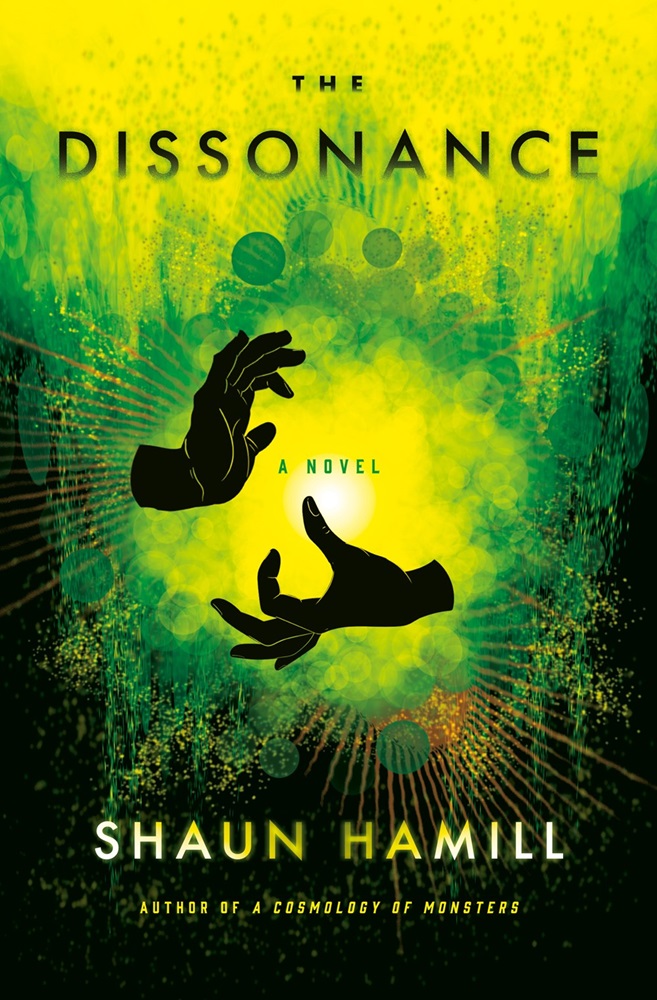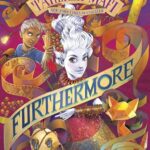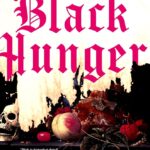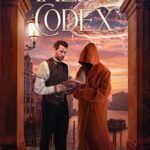
Genres: Adult, Fantasy, Contemporary or Urban Fantasy
Representation: Black MC with chronic pain, secondary gay POV character
Published on: 23rd July 2024
ISBN: 0593317262
Goodreads

From the acclaimed author of A Cosmology of Monsters comes an epic contemporary fantasy: a story of dark magic, terrible mistakes, and second chances.
"You can never go home again," the saying goes—but Hal, Athena, and Erin have to. In high school, the three were students of the eccentric Professor Marsh, trained in a secret system of magic known as the Dissonance, which is built around harnessing negative emotions: alienation, anger, pain. Then, twenty years ago, something happened that shattered their coven, scattering them across the country, stuck in mundane lives, alone.
But now, terrifying signs and portents (not to mention a pointed Facebook invite) have summoned them back to Clegg, Texas. There, their paths will collide with that of Owen, a closeted teenager from Alabama whose aborted cemetery seance with his crush summoned something far worse: a murderous entity whose desperate, driving purpose includes kidnapping Owen to serve as its Renfield. As Owen tries to outwit his new master, and Hal, Athena, and Erin reckon with how the choices they made as teens might connect to the apocalyptic event unfurling over the Lone Star State, shocking alliances form, old and new romances brew, and three unsuccessful adults and one frightened teen are all that stand between reality and oblivion.
From one of the boldest, most brilliant voices in modern fantastical horror, The Dissonance is a thrilling and beautifully written story of magic and monsters, forgiveness and friendship.
I received this book for free from the publisher via NetGalley in exchange for an honest review. This does not affect my opinion of the book or the content of my review.
Highlights
~fuckups unite (I say with love)
~BFFs for real
~the more you’re broken, the more you’re magic
I gave The Dissonance a spot on my Unmissable SFF of 2024 list, but it turned out to not deserve it.
By a lot.
Hamill’s prose is very readable, his characters extremely believable (if not especially unique or interesting), and the premise is great. And I was really enjoying myself for the first half of the book! It was looking like it was going to be at least a four-star read.
But that ending. That last, what, 20, 25% or so. There were parts where I could guess what Hamill was trying to do, but it was such a train-wreck.
The Dissonance is told via dual storylines; one following the main characters in their teens back in the 80s, the other set in 2019. (And I’ve got to be honest, knowing Covid was about to hit like a hammer kind of undermined the whole saving-the-world thing for me. Which it shouldn’t, really, but…it’s hard to cheer when you know an even bigger disaster is right around the corner, you know?) Splitting the story like this was fantastic; Hamill does an excellent job of keeping the tensions high as you go back and forth between the two time periods – I was on the edge of my seat waiting for answers about how we got from there to here. The dissonance (hah!) between where Athena, Peter, Hal, and Erin started as teenagers as they begin learning magic, and where they ended up as pretty broken adults? WHAT HAPPENED? One of them has died – how?! They’ve all lost their magic – why?! I was extremely invested!
And the answers turned out to be…so extremely anticlimatic and nonsensical. I couldn’t believe that’s what happened to their magic. (Or rather, why that’s what happened to their magic – the motivation for it was so Because Plot Requires It Is Why.) And I was genuinely pissed off at how hand-wavey and random the character death was, and the complete lack of even an attempt at explaining what the fuck. Literally the only time the other characters try to discuss how or why it happened, Hal complains that thinking about it is hurting his head, and that’s it. It’s just hand-waved. We’re not supposed to question it, I guess.
Except that, in the lead-up to the climax and the climax itself, Hamill does nothing but throw questions at us, dropping out-of-nowhere revelations on us left, right, and centre – none of which had any groundwork laid for them, none of which make any kind of sense, none of which were necessary or even interesting. Oh, x character is evil actually??? Undines have kids how exactly??? That’s why Hal can’t use magic??? That’s what happened to the school??? You made a soul out of fucking what???
View Spoiler »So much was thrown at us at the last possible minute that added nothing to the story, but was clearly just shoe-horned in to leave room for a potential sequel. I have no objections to writers leaving room for sequels, but for crying out loud, don’t bombard me with info-dump oh yeah AND moments in the last thirty pages!!!
View Spoiler »The hard emphasis on being broken makes you a Dissonant (aka, gives you the ability to use magic) in the Final Battle actually did not fill me with Epic Feels the way I think it was meant to. It ended up underlining a massive wtf in the worldbuilding. See, there’s a whole Dissonant community out of sight of the rest of us. And there are BIPOC and queer Dissonant groups (which makes perfect sense). But the dominant segment of the Dissonant community are white Christians, which???
Sorry, back up. Explain to me how white Christians are in any way broken? In the sense of being out of tune with/rejected from society??? How the fuck does that work, sir? You’re telling me that THIS demographic are – in the US of A – such outcasts that they experience capital d Dissonance?
Yeah, no. I don’t think so.
It’s so frustrating, because there was so much potential in the Dissonant magic system! I was mad as hell to learn that, oh yeah, there are actual marginalised people among the Dissonants – they have their own communities, even! – but we don’t get to see those, just know that they’re there. I wanted to see those! I wanted to be hanging out with them instead of attending an, I swear to all the gods, white Christian magic convention. At which, unsurprisingly, the levels of arrogance and pretension were unbearable.
That was an actual plot point, that stupid convention, and, just – why? Why would you drag the story in this direction when we could have been seeing actual marginalised groups using magic, seeing what they did with it and how it affected their lives and communities? Why didn’t we see more Dissonance among people in poverty? There was just SO MUCH you could have done with this premise that wasn’t done, for no good reason that I can see.
(Except that it would have been too much work. Because if magic is something marginalised people can do, you have to do actual worldbuilding!!! LE GASP! The very idea! /s)
View Spoiler »I am begging someone to tell me what the point of any of it was.
(I am being facetious, please don’t actually bother me with how this is supposed to make sense or how The Dissonance is great, actually.)
View Spoiler »The people-y part of this book was great – the friendship between the four characters was wonderful, and they all felt fully fleshed-out. The ‘normal’-life crap they all had to deal with was done so well that I ached for all of them. The prose was good, and really easy to read. But The Dissonance self-destructs in the final quarter to the point that I just hate it. There’s no one I’d recommend it to.
Just skip it.
Trigger warnings: on-page graphic murder of a small child, on-page graphic murder of teenagers, violence resulting in permanent injury to a main character, dubious consent (both characters are effectively drugged), dubious consent (character has no soul/was made with magic to be another character’s Emotional Support Person), supernatural possession of a decaying body, animal attack/death.






Leave a Reply